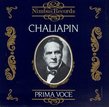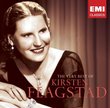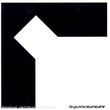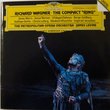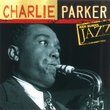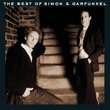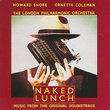| All Artists: Richard [Classical] Wagner, Carl Maria von Weber, Ludwig van Beethoven, Hans Lange, Eugene Ormandy, Edwin McArthur, Philadelphia Orchestra, San Francisco Opera Orchestra, Kirsten Flagstad Title: Prima Voce: Flagstad Members Wishing: 0 Total Copies: 0 Label: Nimbus Records Original Release Date: 1/1/1993 Re-Release Date: 12/2/1992 Genres: Pop, Classical Styles: Vocal Pop, Opera & Classical Vocal, Historical Periods, Classical (c.1770-1830) Number of Discs: 1 SwapaCD Credits: 1 UPC: 710357784729 |
Search - Richard [Classical] Wagner, Carl Maria von Weber, Ludwig van Beethoven :: Prima Voce: Flagstad
 | Richard [Classical] Wagner, Carl Maria von Weber, Ludwig van Beethoven Prima Voce: Flagstad Genres: Pop, Classical
|
CD DetailsSimilar CDsSimilarly Requested CDs
|
CD ReviewsThe voice of the century at its peak cdsullivan@massed.net | Cambridge, MA USA | 10/29/2000 (5 out of 5 stars) "Kirsten Flagstad was the greatest dramatic soprano ever. Her voice had a beauty that would have been exceptional in any lyric soprano, coupled with enormous volume, enabling her to float easily over the huge Wagnerian orchestra. Unfortunately, her prime came before the advent of LP and complete opera recordings, so we don't have as good a record of her singing as we could have. Her best operatic recording is probably "Tristan und Isolde" under Furtwängler, recorded in 1952; complete recordings also exist of her Brünnhilde (La Scala, 1950, various labels), Leonore/Fidelio (Salzburg, 1950, EMI), and Dido (studio recording, EMI); and, of course, her Fricka in Solti's "Das Rheingold" (Decca, 1958). She also made many lieder records for Decca in the mid to late 1950's. However, she was in her mid-fifties when she made these recordings, and her voice was, understandably, past its prime (though Flagstad past her prime is better than anyone else). There are a few recordings left from the 1930's that give us a rough idea of what her voice was like in its prime - and some of those are what make up this Nimbus collection.The recordings featured on this disc were made between 1935 and 1939, just after she hit the international operatic scene. The first selection, "Hojotoho" from "Die Walküre," immediately demonstrates that this is the greatest Brünnhilde ever. She also sings Sieglinde's "Du bist der Lenz" radiantly (but I'd like to know who was Brünnhilde if she was playing Sieglinde). She is also heard in excerpts from "Tannhäuser" and "Lohengrin," operas that did not feature in her international career. The prize of this set, though, is the Beethoven: "Abscheulicher" from "Fidelio" and the concert aria "Ah, perfido." They are ideally suited to her voice, and she sings them with deep feeling and expression. There is also an excellent "Ozean, du Ungeheuer" from Weber's "Oberon," and accounts of the final scenes from "Tristan und Isolde" and "Götterdämmerung." Here, however, is where my only reservation kicks in. This WAS the 1930's, so the orchestra is tiny, tinny and faintly recorded. The speeds are often extremely fast, presumably to fit the recording onto the short-playing 78s for which they were made. The conductors, also, are not famous names, with the exception of Eugene Ormandy. The other two conductors are Hans Lange and Edwin McArthur (known as a good pianist but excrutiatingly bad conductor whose work Flagstad had an unaccountable partiality for). But the sound is excellent for its period, with a minimum of surface noise and admirable clarity on Flagstad's voice, even if this can't be said of the orchestra. But the orchestra doesn't really matter, anyway; what matters is that here we get to here the voice of the century in its absolute prime, in listenable sound. At a generous 77 minutes and mid price, this is an unbeatable bargain." Astonishing! 07/16/2004 (5 out of 5 stars) "Once again we get to relish the magnificence of the Flagstad sound. Some say she is does not express the subtle inner feelings of gentler characters well; well, I don't fully agree with that. She doesn't resort to what is a commonly done, and overly done, practice of today of singing all "delicate female lead roles" in a pianissimo, or in a small overly delicate delivery. Nor does she sing the dramatic climaxes in pianissimo (again a practice of today that reflects that most of those singers couldn't sing the climaxes with the volume that is require by the composer). That doesn't, however, remove the inner more thought provoking moments of the music, or the introspection of the character. Intimacy doesn't mean "quietly." It is the way of delivery, which she does master. She is a huge voice, and a huge voice, no matter how wonderful, can never reduce itself to the level of a Mozartian singer. Such delicacies are not possible for such a voice. Within the context of her sound, she is masterful. It is good to hear the Walkure war cry with the portamenti that Wagner wrote. So many people think the notes (the octave jumps) are to be sung detatched, or well apart and clearly attacked. That is NOT what Wagner wrote, even if that is how the great Birgit Nilsson sang them. Wagner wrote portamenti (even when in the third act for the Walkures themselves) and they MUST be sung. A bad portamenti will sound extremely sloppy. Flagstad sings an excellent one. And, as written in the score, the upper note is short. The high B and high C are often held far too long now days. My only disappointment is the lack of a good trill. Flagstad had a trill, and it is recorded in her rendition of "Ocean, you mighty monster." In the war cry, Wagner expects a trill that lasts many measures, but even though there is a sort of trill happening, it is not as clean as it should be. Nilsson has no trill at all there, as do most singers of Wagner, and no trill has ever been sung or recorded by a modern interpreter of the role of Brunhilde. For a singer so stuck on details as Flagstad was, one would expect a better trill. Putting that aside, the recording was astonishing and magnificent. We are witnessing the grand singing of a great singer. She is singing to us, not expecting us to sneak up and try to listen in some dark private corner. Her warm large voice invites us in and envelopes us. The sound quality is quite good. I am becoming so amazed at how good these old remastered recordings of a long ago time when recordings were still in their infancy turn out. It seems that years ago they were noisy reflections peeping out of the mush. Now they are clear and the quality of singing, and orchestral playing we often hear is incredible. They reflect a standard we never see in the theatre now days. Yes, our singers are fine musicians, extremely fine, and often with very excellent skills in many aspects of music (a thing not often the case in the past), but they are also very bland, and they all sound the same, interpret the same, and do the same thing. Small voices are in because they record well. Small delicate interpretations are the norm, and that is what makes this recording insettling for some. Here we are hearing someone who is singing out as they interpret, not hiding the voice in tiny whispers. We have become so accustomed to a small, delicate, overly-refined interpretation of everything, when we hear a real blood and gust vital interpretation we are uncertain what to make of it. Flagstad's interpretation is very much of her day; an interpretation to wash you away in the drama, not to settle you down into your easy chair and just rest with it." The wonder of the Flagstad voice cdsullivan@massed.net | 01/09/2005 (5 out of 5 stars) "What more can one say about Kirsten Flagstad that hasn't already been said? She's been called the greatest soprano of the 20th century, the greatest Wagnerian soprano, the greatest this and that. Well, her voice is a superb instrument totally deserving of the lavish praise that people have given it. The sheer beauty of the voice is breathtaking. This sound reminds one of the sheer Artic expanse of Flagstad's homecountry, Norway. On top of this, the Flagstad voice is superbly controlled, never ever wobbling, turning strident, or losing breath support. Each tone is a perfect jewel, amazing in beauty and roundness. Flagstad is not a very dramatic singer, but with supreme singing like this, who really cares! Her voice is awe inspiring in "Ozean du Ungeheuer", its incredible amplitude filling out the majestic phrases of this wonderful aria perfectly. This aria is very difficult to sing, but Flagstad sings it like it were a simple vocalise, so effortless is her singing and rock solid her singing technique. Her Liebestod is sung magnificently, showing why she is in the category of the top three Isoldes in history. Her Immolation Scene is badly conducted, the first section taken way too fast, but she sings up a storm. The power and splendor of the Flagstad voice in this sublime music is unbelievable!
Huge, round, beautiful dramatic soprano voices like Kirsten Flagstad's, Eileen Farrell's, and Helen Traubel's are very difficult to find nowadays. The closest we have come is Deborah Voigt and Christine Brewer. Brewer has an incredible voice, lush, rich, dark, and composed of three rock-solid registers. Her top is truly a wonder to hear. One thing all five of these magnificent sopranos share is a rock-solid singing technique, based on years of diligent training and hard work. To sing the music of their chosen repertoire, they must have rock-solid singing techniques. Each of these sopranos has a unique voice and should be appreciated. Anyway, getting back to Flagstad, she continues her magnificent singing in the other arias included on this compilation CD. Nimbus has done a very good job of cleaning up surface noice with the result that the recordings are very listenable. Brava to Kirsten Flagstad, a voice that is totally unique and sensational." |

 Track Listings (11) - Disc #1
Track Listings (11) - Disc #1